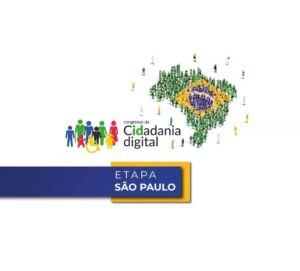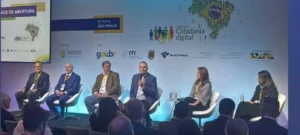Dr. João Mallmann, 28, never imagined that his search for Portuguese citizenship at the end of 2023 would bring so many revelations into his life. At the age of 27, his suspicions about being adopted were confirmed.
But the story went much deeper than he imagined. “I always suspected it since I was a child. There was always a feeling of displacement, of not belonging within that family,” he told UOL.
“I never felt like I was treated as a son. Unfortunately, I ended up going through various physical and psychological abuses within my own adoptive family. I was mistreated and humiliated.”
João grew up hearing that he had two siblings who died during a home birth—according to that version, he was the only survivor of the triplets. He also found it odd that there were many baby pictures of him but none of his mother pregnant.
While searching for documents to apply for citizenship, he needed his parents’ marriage certificate. That’s when he discovered that much of what he knew about his mother was a lie.
“She claimed she was an only child, that her parents were only children, and they came from a very wealthy family. My grandfather supposedly died suddenly, and my grandmother ‘lost everything’ to gambling. She used to say my father was the only man in her life.”
“When I got the document, I found out she was nine years older than she claimed. I saw she had been divorced before marrying my father, and they only formalized their union in 2010. All of this started drawing my attention,” João Mallmann explained.
João also never had information about his adoptive mother’s parents. When he searched for their death certificates, he discovered they died in 2011 and 2020. “I could have had a relationship with them, but I didn’t.” He also learned that his mother had several siblings. “She invented a new life because she was ashamed of her poor origins.”
“After discovering all these inconsistencies, I thought: ‘If they’re capable of lying about all this, they’re also capable of lying about my life.’ Something inside told me I was adopted,” João Mallmann added.
Request for Help
In February 2024, Dr. João Mallmann posted on Instagram, sharing his recent discovery. He tried to talk to his adoptive parents and ask for explanations, but no answers came. The post went viral, prompting him to reach out to family friends to uncover his story.
When close acquaintances confirmed his adoption suspicions, João discovered that his birth records had been falsified.
“I even tried confronting them to give them a chance to explain, but unfortunately, I was met with hostility and deeply humiliated,” he shared.
“At first, they claimed I was crazy, experiencing a psychotic episode, and insisted I was their biological child. Today, they admit that I was illegally adopted,” João revealed.
Through his research, João found people directly involved in his illegal adoption, learning that the process had been premeditated—he was “ordered” to be taken to his adoptive family.
“The person who transported me from the hospital to my adoptive parents’ home confirmed several suspicions. My parents claimed I was left at their door, but that didn’t make sense because they lived in an apartment,” he explained.
A friend suggested he share his story on TikTok, leveraging the platform’s algorithm to reach a broader audience.
“Knowing that so many people were hearing about all my traumas was overwhelming,” João said.
One of his early posts garnered nearly three million views. Soon, information began pouring in, and he had to learn how to filter credible leads.
“Initially, I investigated everything. Confirmed details helped filter new information,” João explained.
Two years earlier, João had taken a genetic test out of curiosity, without any intention of finding relatives. However, the results revealed he had German ancestry, contradicting his adoptive parents’ claims of Italian-Portuguese heritage.
Sharing this on social media led a follower to offer assistance in finding his biological family through genealogy. They quickly traced his lineage to a man named Marino, whom João later identified as his grandfather.
“I went descendant by descendant of Marino, asking if they knew any stories of stolen, donated, or sold children in the family. Eventually, I connected with a man named Alviro, who was certain I was his nephew,” João recounted.
Alviro connected João to Adriano, his paternal brother, who shared the family history and revealed that his father, Giovani, had been searching for him.
DNA Test Resolved All Doubts
“Genetic testing provided many answers, including the biggest one: finding my biological father. During the DNA test process, we had a video call, which was the first time I spoke to him,” João shared.
Before receiving the results, João was cautious about raising expectations. However, even before confirmation, his biological father shared information about João’s mother. Once the test results came in, João sought her out.
“What seemed like finding a needle in a haystack became easier,” he said.
Through Facebook, a friend identified his mother’s name and connected João with his maternal sister, who then facilitated contact with his mother.
“My maternal sister didn’t know about my existence because my mother had spent her pregnancy working in Curitiba, far from her,” João explained.
João’s mother expressed shame and regret, feeling coerced into the adoption.
“She was a vulnerable woman in postpartum, subjected to a series of tragic coincidences that led to my illegal adoption,” João said.
The History of Adoption
João’s mother, Ana Maria, moved to Guarapuava from Curitiba while pregnant, seeking employment to support her two children. After being robbed on the bus and left penniless, she went into labor and sought help at a hospital.
According to Ana Maria, a nurse and an obstetrician coerced her into giving up João.
“They told her she was poor, with nothing to her name, and couldn’t care for me,” João explained.
Reunion with His Mother
On November 17, 2024, João and his mother reunited at the Curitiba bus station—28 years after their last meeting.
“It was symbolic because the last time we saw each other, I was taken for illegal adoption from a bus station in Guarapuava,” João reflected.
The two now maintain daily contact via WhatsApp.
“The child in me, who longed for love, feels healed,” João shared.
On social media, João summarized his journey: “I discovered I was illegally adopted,” he said. “I found my biological family with the help of TikTok, and I am very grateful for that.”
Adoptive Family Speaks of ‘Unconditional Love’
In a statement sent to UOL, João’s adoptive family’s lawyer, Marinaldo Rattes, described the story as a “narrative that spans generations and highlights the complexities of human relationships and the legal structures of the time it unfolded.”
He emphasized that until 2002, Brazil’s 1916 Civil Code imposed strict requirements for adoption.
“Adopters needed to be over 50 years old, married to each other, and obtain the formal consent of the person who had custody of the adoptee. These requirements made formal adoption inaccessible for many couples, especially those who wanted to raise young children.”
In the statement, Marinaldo claimed João was “left at the doorstep of a couple by a third party” and that “with no alternatives and driven by the desire to raise a child, the couple chose to take João in.”
“Even though they did not meet the adoption criteria, they gave the boy everything they had: unconditional love, protection, education, and opportunities that allowed him to become the man and professional he is today.”
— Marinaldo Rattes, lawyer for the adoptive family
In Brazil, the so-called “Brazilian adoption” carries a penalty of two to six years in prison. However, if the crime is motivated by noble intentions, the penalty is reduced to up to two years, and the judge may grant a pardon.
Célio Ribeiro Highlights the Importance of Biometric Identification
Célio Ribeiro, Executive President of InterID, emphasized the importance of the case:
“This is yet another of many cases that could be avoided with the implementation of neonatal and child biometrics. We need to end the precarious nature of the fragile newborn identification system, which currently depends on inefficient biometric collection and paper documents without systemic control and integration.
A new identification system must be initiated. The adoption of the Electronic Live Birth Declaration (e-DNV), resulting from the capture of newborn and maternal biometrics, will drastically reduce cases of abduction, baby swaps, and child trafficking.
And he added: “With the CIN, our children will be identified and protected, making the National Identity Card our greatest instrument of citizenship.”




